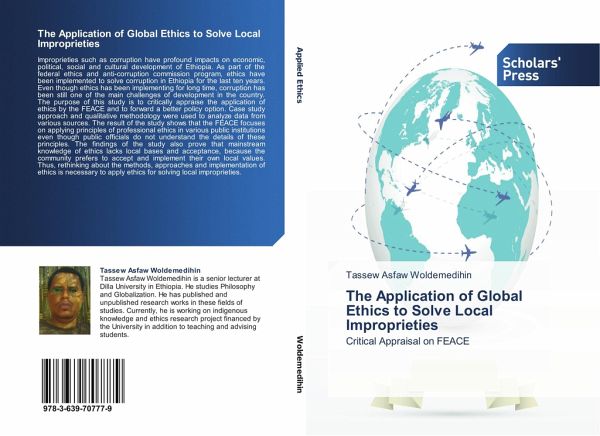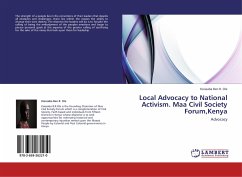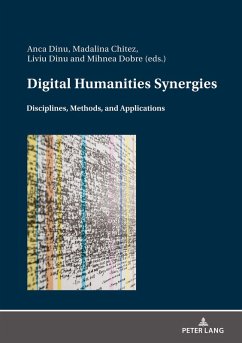
The Application of Global Ethics to Solve Local Improprieties
Critical Appraisal on FEACE
Versandkostenfrei!
Versandfertig in 6-10 Tagen
40,99 €
inkl. MwSt.

PAYBACK Punkte
20 °P sammeln!
Improprieties such as corruption have profound impacts on economic, political, social and cultural development of Ethiopia. As part of the federal ethics and anti-corruption commission program, ethics have been implemented to solve corruption in Ethiopia for the last ten years. Even though ethics has been implementing for long time, corruption has been still one of the main challenges of development in the country. The purpose of this study is to critically appraise the application of ethics by the FEACE and to forward a better policy option. Case study approach and qualitative methodology wer...
Improprieties such as corruption have profound impacts on economic, political, social and cultural development of Ethiopia. As part of the federal ethics and anti-corruption commission program, ethics have been implemented to solve corruption in Ethiopia for the last ten years. Even though ethics has been implementing for long time, corruption has been still one of the main challenges of development in the country. The purpose of this study is to critically appraise the application of ethics by the FEACE and to forward a better policy option. Case study approach and qualitative methodology were used to analyze data from various sources. The result of the study shows that the FEACE focuses on applying principles of professional ethics in various public institutions even though public officials do not understand the details of these principles. The findings of the study also prove that mainstream knowledge of ethics lacks local bases and acceptance, because the community prefers toaccept and implement their own local values. Thus, rethinking about the methods, approaches and implementation of ethics is necessary to apply ethics for solving local improprieties.












